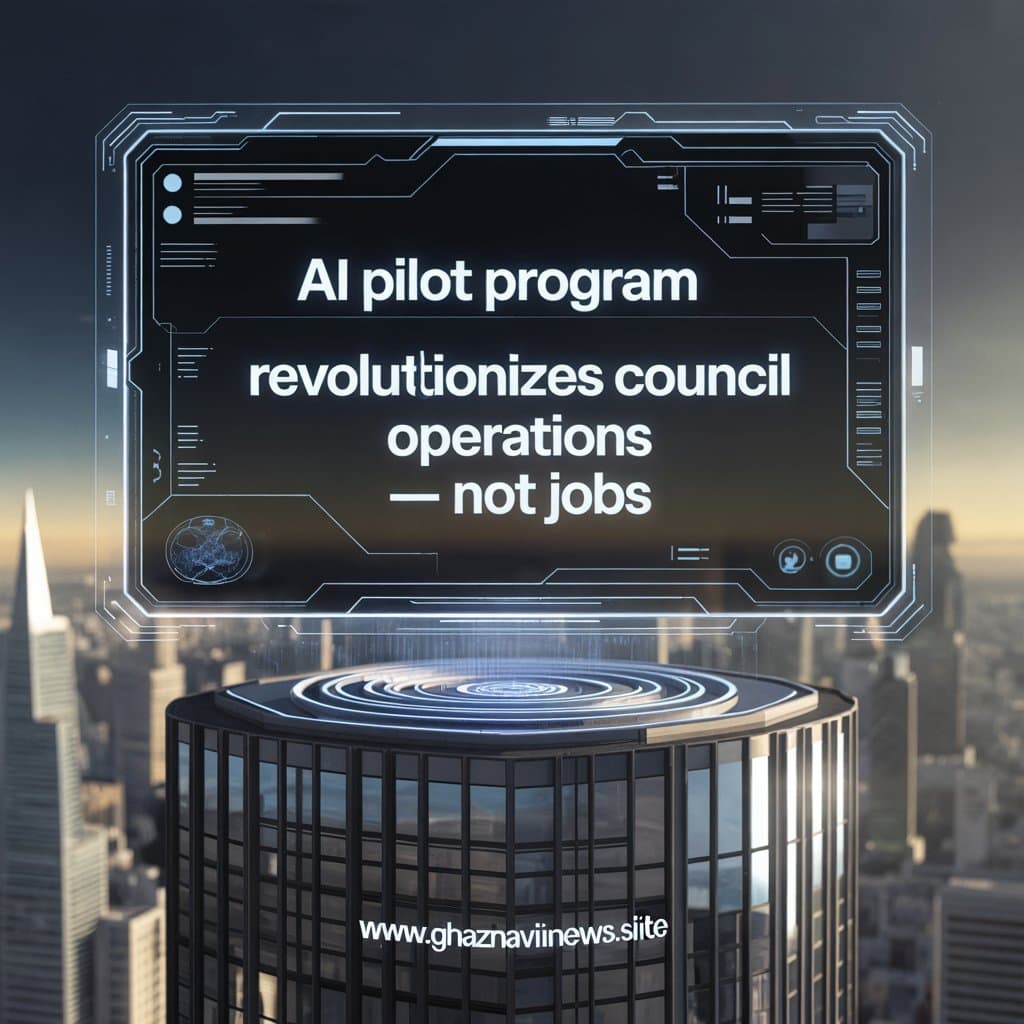
AI Pilot Program Revolutionizes Council Operations Not Jobs
In a bold move toward innovation, Stockton Council is embracing artificial intelligence (AI) in a way that could redefine how local governments operate—without sacrificing jobs. The council has launched a pilot AI program designed to assist staff by reducing manual administrative tasks, enhancing workplace efficiency, and improving public service quality.

Unlike narratives that position AI as a job threat, Stockton’s initiative sends a different message: empower, not replace. By automating repetitive tasks like transcribing and summarizing meetings, the council allows employees to dedicate more time to engaging with the community and fulfilling core service missions.
How AI Is Helping, Not Hurting: Real Use Cases in Local Government
Stockton is among 25 UK councils trialing new AI technologies under a national initiative. Two standout tools, “Minutes” and “Magic Notes,” are being tested to record, transcribe, and summarize meetings—efficiently handling conversations involving up to 40 participants.
The results so far have been remarkable. Tasks that once took three hours of manual input now require just 30 minutes, freeing up valuable time for staff to focus on higher-priority projects.

“It’s fundamentally changing how our staff work day to day,” said Councillor Paul Rowling, Stockton Council’s Deputy Leader. “They now spend far less time on admin and much more on delivering the public services our community relies on.”
What the Pilot Program Really Does
These AI tools do more than generate transcripts. They can fill out action plans, draft internal reports, and generate standardized documents—removing the need for hours of routine work. According to Corinne Moore, the council’s Digital and Web Development Manager, the technology is especially useful in time-intensive departments like public safety.
“Instead of staff spending hours transcribing notes manually, we can now summarize lengthy discussions in a fraction of the time,” Moore said.
The Union’s View: Proceed with Care
While the program has been largely applauded, unions like Unison, which represents public service workers in the UK, have raised cautious support. They advocate for AI’s use in improving work-life balance but stress that it must not come at the cost of staff employment.
“There are clear benefits to AI when it’s used ethically,” said Kate Jones, Head of AI Policy at Unison. “But staff need to be protected through retraining and re-skilling programs. Job loss should not be the outcome.”
Jones noted that while some employees appreciate the reduced workload, others are still nervous about long-term automation impacts.
Preparing for the Future, Not Downsizing the Workforce
Stockton Council is clear in its stance: the AI pilot is not a cost-cutting exercise. Instead, it’s part of a broader vision to future-proof their workforce by upgrading skills and enhancing operational agility.
“We see this as an opportunity to upgrade skills and improve our team’s capabilities,” Councillor Rowling said. “This is not about reducing headcount; it’s about creating a more agile, future-ready workforce.”
At a time when artificial intelligence can spark fear or skepticism, Stockton’s thoughtful and transparent approach to implementation may serve as a model for other councils and public institutions across the UK.
Table of Contents
What is the AI pilot program at Stockton Council?
It’s a trial involving artificial intelligence tools that transcribe, summarize, and assist with administrative tasks to reduce workload and increase efficiency.
What are the tools being tested?
Two primary tools, “Minutes” and “Magic Notes,” are currently under evaluation. They can handle tasks like meeting documentation, summary generation, and report templates.










[…] AI Pilot Program Revolutionizes Council Operations Not Jobs […]
[…] Also Read […]